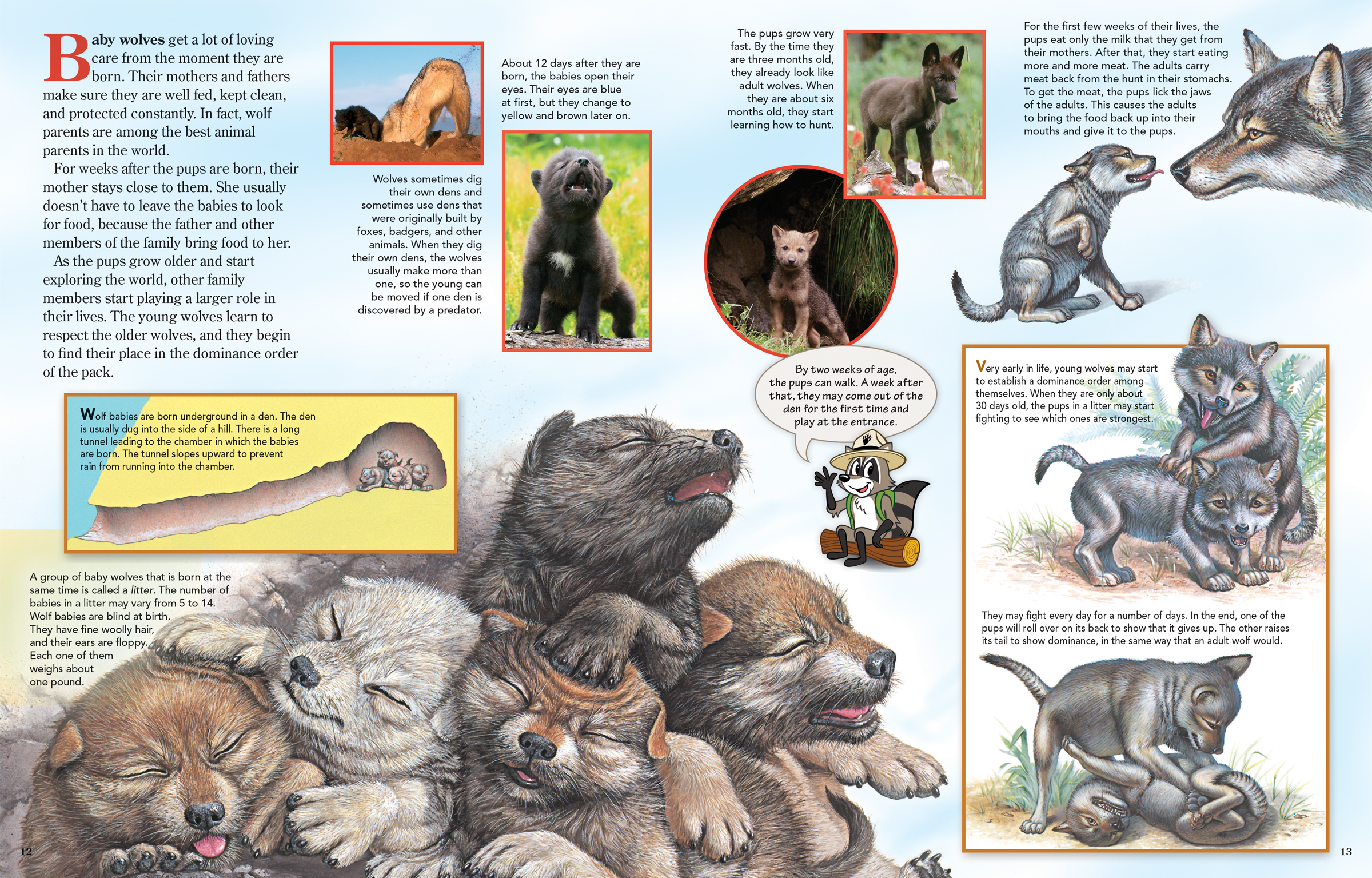
Baby Wolves Get a Lot of Loving Care
ByBaby wolves get a lot of loving care from the moment they are born. Their mothers and fathers make sure they are well fed, kept clean, and protected constantly. In fact, wolf parents are among the best animal parents in the world.
For weeks after the pups are born, their mother stays close to them. She usually doesn’t have to leave the babies to look for food, because the father and other members of the family bring food to her.
As the pups grow older and start exploring the world, other family members start playing a larger role in their lives. The young wolves learn to respect the older wolves, and they begin to find their place in the dominance order of the pack.
Wolves sometimes dig their own dens and sometimes use dens that were originally built by foxes, badgers, and other animals. When they dig their own dens, the wolves usually make more than one, so the young can be moved if one den is discovered by a predator.
About 12 days after they are born, the babies open their eyes. Their eyes are blue at first, but they change to yellow and brown later on.
Wolf babies are born underground in a den. The den is usually dug into the side of a hill. There is a long tunnel leading to the chamber in which the babies are born. The tunnel slopes upward to prevent rain from running into the chamber.
A group of baby wolves that is born at the same time is called a litter. The number of babies in a litter may vary from 5 to 14. Wolf babies are blind at birth. They have fine woolly hair, and their ears are floppy. Each one of them weighs about one pound.
The pups grow very fast. By the time they are three months old, they already look like adult wolves. When they are about six months old, they start learning how to hunt.
For the first few weeks of their lives, the pups eat only the milk that they get from their mothers. After that, they start eating more and more meat. The adults carry meat back from the hunt in their stomachs. To get the meat, the pups lick the jaws of the adults. This causes the adults to bring the food back up into their mouths and give it to the pups.
By two weeks of age, the pups can walk. A week after that, they may come out of the den for the first time and play at the entrance.
Very early in life, young wolves may start to establish a dominance order among themselves. When they are only about 30 days old, the pups in a litter may start fighting to see which ones are strongest.
They may fight every day for a number of days. In the end, one of the pups will roll over on its back to show that it gives up. The other raises its tail to show dominance, in the same way that an adult wolf would.

